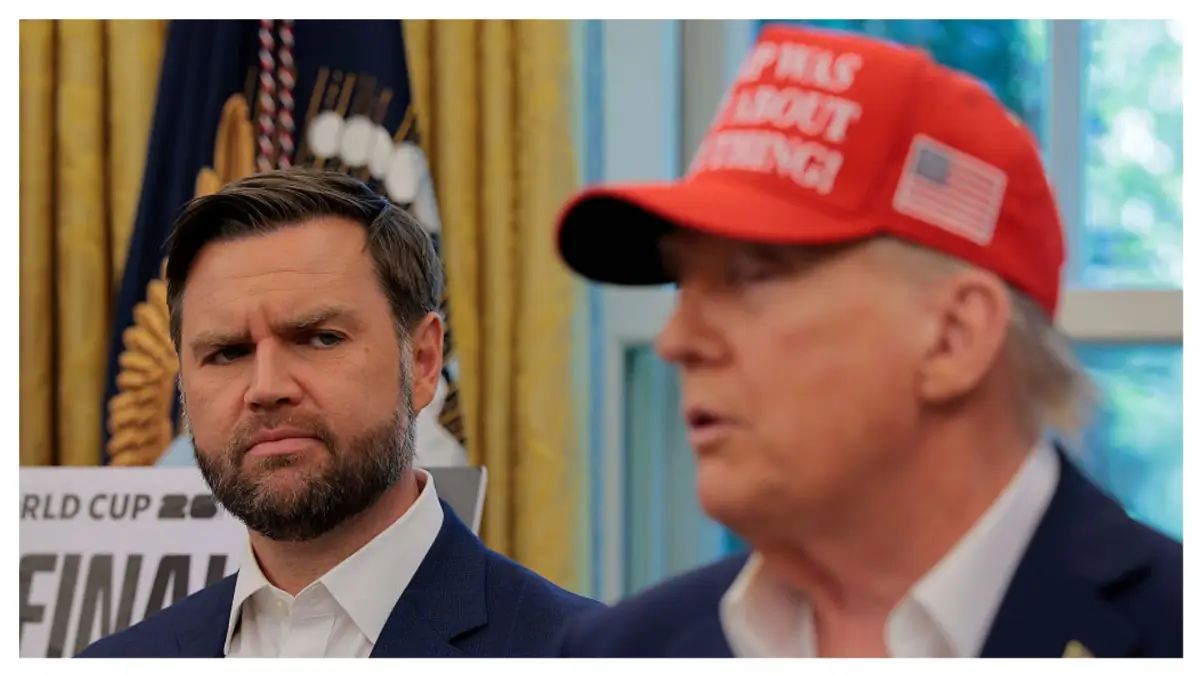
A Meme That Backfired: White House’s Halloween Post Sparks Outrage
As millions of Americans face furloughs, food insecurity, and growing anxiety due to a month-long government shutdown, the Trump administration chose an inopportune moment to post a meme. The official White House account on X shared a Halloween-themed graphic featuring President Donald Trump, Vice President JD Vance, House Minority Leader Hakeem Jeffries, and Senate Minority Leader Chuck Schumer.
The image included a ghost emoji with the caption “Choose wisely …” and humorous descriptions of each politician. Jeffries was shown wearing a sombrero with the caption, “Includes -sombrero – one filibuster speech no one remembers Not included – common sense.” However, the post quickly backfired due to a critical error. The White House account mistakenly associated Jeffries with New Jersey Senator Cory Booker, who had recently delivered a record-breaking Senate filibuster. Jeffries, a member of the House, has never participated in a filibuster, as the House does not allow it.
Vance was also featured in the post with a caption that read, “Includes – the word please – you didn’t say thank you memes Not included – fat JD curly hair.” This line was seen as unflattering compared to the praise typically given to Trump. The post received over 1.4 million views and sparked widespread backlash on social media.
Social Media Reacts to the Meme
Users took to platforms like X to express their frustration. One user questioned, “Does the intern running the white house page not know Hakeem Jeffries and Cory Booker are different people?” Another commented, “Official government account is tweeting lame ass insults to other politicians … This administration is a joke.” Others criticized the tone-deaf nature of the post, with one saying, “So tasteless. To think that the official White House page would be posting something like this. All class gone.”
The jokes about Vance continued to pile up, with some users noting, “I guess making fun of JD Vance is something we can all agree on.” Instead of addressing the mockery, Vance embraced the humor by dressing up as his own viral caricature for Halloween. He posted a video on X with a wild wig and a self-parodying message: “Happy Halloween everyone, remember to say thank you while you trick or treat!” The White House even reshared the costume photo, further amplifying the spectacle.
Critics argued that the move only deepened the embarrassment. One Threads user remarked, “This is like the bullied kid in high school becoming self-deprecating and pretending everyone is actually laughing with him instead of at him.” Another added bluntly, “He’s trying too hard to be funny.” Others were more direct, calling it “a disaster” and stating, “You are the world’s laughing stock.”
A Poor Timing for Meme Culture
The tone-deaf posts came at a particularly bad time. The government remains shut down, with 42 million Americans facing the suspension of SNAP benefits starting November 1. The U.S. Department of Agriculture confirmed the situation while accusing Senate Democrats of “deliberate obstruction.” A Washington Post poll showed that 45 percent of Americans now blame Trump and Republicans for the shutdown, compared to 33 percent who fault Democrats.
Despite the crisis, the White House has focused on meme culture rather than damage control. The sombrero meme originated in early October when Trump posted an AI-generated video showing Jeffries in a sombrero and mustache, accompanied by mariachi music. The video also depicted Schumer making fabricated remarks in a faux-Latino accent, which Jeffries called “disgusting” and “racist and fake.” Vance defended the videos, calling them “funny,” and the White House later replayed the clip on large screens during a press briefing.
Critics argue that while Americans wait for their paychecks, healthcare benefits, and agency operations, the White House is posting memes that mock minority lawmakers and promote Trump’s persona instead. The incident highlights a growing disconnect between the administration and the public, raising concerns about the appropriateness of using humor in such a serious political climate.

Post a Comment